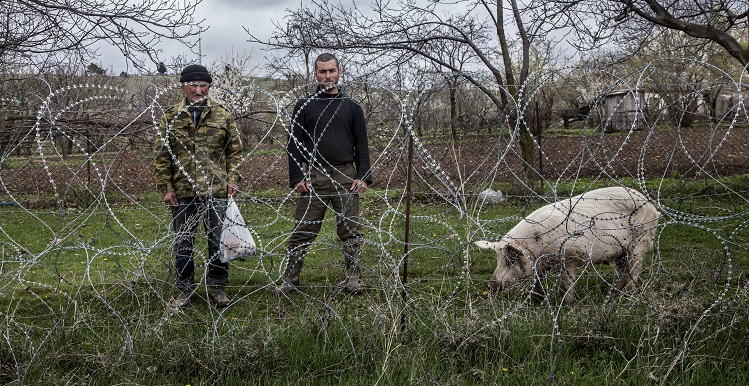European Parliament adopts resolution in run-up to June EaP summit, urges ‘clear strategy’

The resolution of the European Parliament said that Russia, ‘as an aggressor’ is creating serious problems for the EaP states. Photo: Nino Alavidze/Agenda.ge.
The European Parliament has adopted a resolution in the run up to the June 19 Eastern Partnership Summit, providing recommendations to the European Council, Commission, vice president of the European Commission and High Representative of the EU for Foreign Affairs and Security Policy on the Eastern Partnership.
The document says that while accession (to the EU) is not foreseen under the framework of the EaP, the EaP policy can facilitate a process of gradual integration into the EU.
Consider that for an eventual accession process both the EU and the EaP country concerned must be well-prepared, taking into account the EU’s future reforms process and the partner country’s approximation to the EU acquis, as well as its compliance with EU membership criteria; ensure that the full implementation of the current agreements between the EU and EaP countries will be the first step in this gradual integration process,” the resolution said.
The European Parliament has recommended the ‘prompt enactment’ of a strategic and future-oriented vision for the next decade of the EaP policy beyond 2020 ‘with the aim of providing benefits first and foremost to citizens, strengthening resilience, fostering sustainable development, ensuring irreversible achievements, and deepening the EU-EaP cooperation and integration process, which is in the EU’s own security and economic interests.’
 The document cited the threats of Russian actions for wider Europe. Photo: Nino Alavidze/Agenda.ge.
The document cited the threats of Russian actions for wider Europe. Photo: Nino Alavidze/Agenda.ge.
The document said that in most EaP member states ‘Russia is playing an active role as an aggressor’ through its hybrid warfare, illegal occupation and annexation policy, cyberattacks,propaganda and disinformation, which threaten European security as a whole.
Ensure that the conclusions of the June 2020 Summit include a clear strategy and a long-term common vision for further engagement and development of the EaP beyond 2020,” said the document, adding that the EaP should continue to be an attractive framework for cooperation and support this process in line with the ‘more for more’ principle, in order to keep EaP countries engaged in the reform process and on their path towards the EU.
Read the full document here.
 Tweet
Tweet  Share
Share